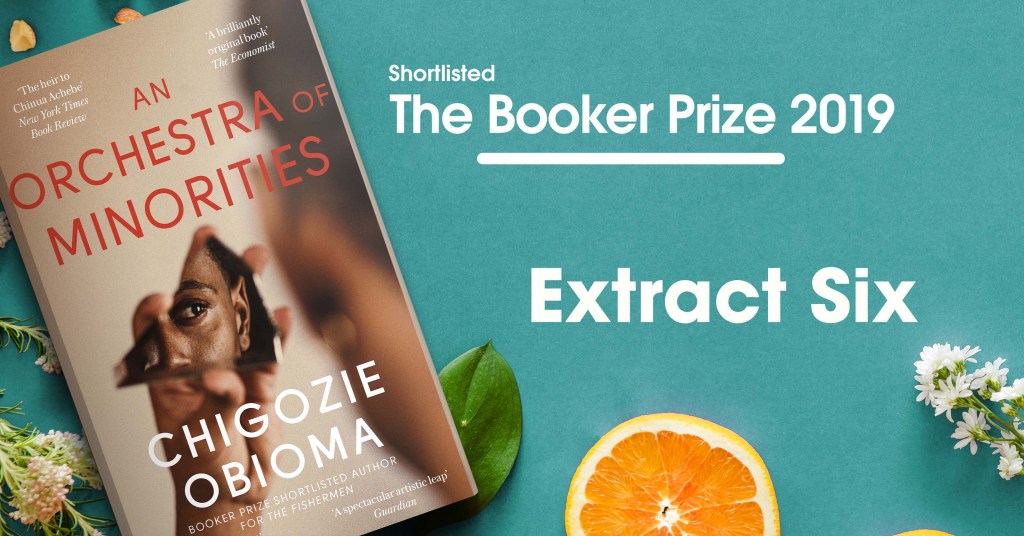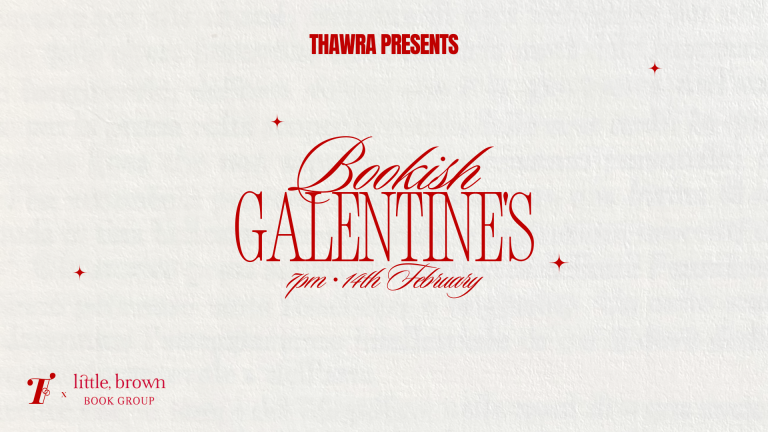An Orchestra of Minorities: Extract #6

An Orchestra of Minorities, the second novel from twice Booker-shortlisted author Chigozie Obioma, tells the story of a poultry farmer in love, and is narrated by the farmer’s guardian spirit or chi.
On that day, he was sitting on the floor in his kitchen, watching the brown chickens, all roosters, grazing alongside the brown hens and chicks and walking about the yard, feeding from mounds of marsh and corn which he’d spread on sacks. From the window, he caught sight of a hawk hovering over the birds, biding its time. He quickly unhooked his catapult from the nail on which it hung on the wall and picked out stones from the small raffia basket by the window. He shook off and blew small red ants off the stones. Then, closing one of his eyes and standing a short distance behind the door to conceal himself, he placed a stone in the rubber pocket of the catapult and held still, his eyes on the hawk. The bird had stopped at some point in mid- air, then raised itself further above so the chickens did not see it. Its wingspan then broadened, and in a moment, it plunged towards the compound with stupefying speed. He followed it, and as it attempted to grab a cockerel feeding near the fence, he released the stone.
True, he was adept in this art of stone archery, and he’d been slinging stones since he was a child, but it is hard to understand how he got the bird on its forehead. There was something instinctive about it, something divine in origin. It felt, Chukwu, as if this act itself had been rehearsed many years ago, before he was born, before you assigned me to be his guardian spirit. It was this act that began his fresh healing. For it seemed as if he’d carried out revenge against that primal force with whom he must reckon, that unseen hand that takes away whatsoever he possesses. That voice that seems to say, ‘Look, he has been happy for so long, it is now time to send him back to that dark place where he belongs.’ And from the end of that second week, he began to live again. Rain poured in the days following with a relentlessness that reminded my host of one year in his childhood, while his mother was still alive, when rain destroyed a neighbour’s house and the family came to take shelter with my host’s family. During these wet days, it was hard for his poultry to come out of the coops into the yard. He, like them, kept away from most things and recoiled into the lone world he’d become accustomed to. Chukwu, he would live like this for the next three months.
- * * * * * *
Not too long ago, he began, he’d let out the flock, almost all the poultry except the occupants of one of the cages of broilers, and had started to peel yams into the sink in his kitchen, looking out every now and then, when he noticed a hawk hovering in the air above the flock. He opened his louvres, grabbed the catapult, and pulled a stone from the windowsill. He blew the stone with his mouth to clear off the red ants on it. Then he unhooked one of the louvres to allow his hand enough space and wound the handles so that the louvres stood in straight horizontal layers over each other. Then he waited for the bird to strike.
The hawk, he informed her, might be the most watchful of birds and can hover for hours on end, priming its target, making an effort to strike as precisely as possible – so one strike might be enough. So he, knowing this, waited for it, too. He did not take his eyes away from where it hovered for a second. It was why he caught it in that very moment when it made the daring plunge into the yard, picked up a small rooster, and attempted to mount the updraft. The missile knocked the raptor against the wall of the fence, making it drop the chick. The hawk slid down to the foot of the wall with a thud. It hoisted itself up, its head momentarily lost in its spread- out wings. It had been concussed.
He hastened out into the yard as the hawk tried to stand erect, then pinned it to the wall, unfazed by the violence of its beating wings and its riotous squawks. He dragged the bird by its wings to the cashew tree at the end of the compound, beside the rubbish bin. He could not, he emphasised, describe the anger he’d felt. It was with this great anger that he bound the hawk by its wings, its head blood soaking the strong fibres of the twine. As he tied the bird to the tree, he spoke to it and all of its kind – all who stole what people like him reared with their sweat, time and money. He walked into the house and returned with a few nails, sweat bleeding down his back and neck. As he stepped back into the yard, the hawk called with a strange fury, its voice piercing and ugly. He picked up a big stone from behind the tree and held up the bird’s neck against the tree. Then he struck the nail into its throat with the stone until the nail burst out on the other end, spitting splinters and unbuckling a coat of old bark from the tree. He spread one wing, his hand and the stone now covered in the hawk’s blood, and drove it, too, deep into the flesh of the tree. Although he saw that he’d done something extremely violent and unusual, so overwhelmed with rage was he that he was determined to complete what his mind had conjured up as the deserving punishment for the bird: a crucifixion. Thus he put together the feathery legs of the dead bird and nailed them to the tree. And it was finished.
Shortlisted for the Booker Prize 2019, An Orchestra of Minorities is a heart-wrenching epic about the tension between fate and free well.






